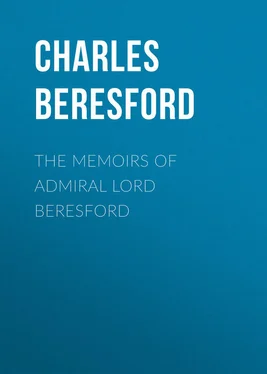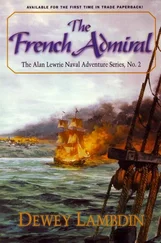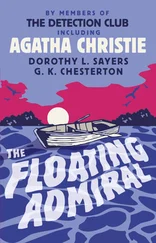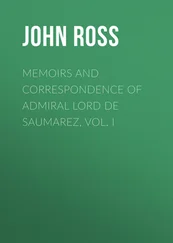Charles Beresford - The Memoirs of Admiral Lord Beresford
Здесь есть возможность читать онлайн «Charles Beresford - The Memoirs of Admiral Lord Beresford» — ознакомительный отрывок электронной книги совершенно бесплатно, а после прочтения отрывка купить полную версию. В некоторых случаях можно слушать аудио, скачать через торрент в формате fb2 и присутствует краткое содержание. Жанр: foreign_antique, foreign_prose, на английском языке. Описание произведения, (предисловие) а так же отзывы посетителей доступны на портале библиотеки ЛибКат.
- Название:The Memoirs of Admiral Lord Beresford
- Автор:
- Жанр:
- Год:неизвестен
- ISBN:нет данных
- Рейтинг книги:5 / 5. Голосов: 1
-
Избранное:Добавить в избранное
- Отзывы:
-
Ваша оценка:
- 100
- 1
- 2
- 3
- 4
- 5
The Memoirs of Admiral Lord Beresford: краткое содержание, описание и аннотация
Предлагаем к чтению аннотацию, описание, краткое содержание или предисловие (зависит от того, что написал сам автор книги «The Memoirs of Admiral Lord Beresford»). Если вы не нашли необходимую информацию о книге — напишите в комментариях, мы постараемся отыскать её.
The Memoirs of Admiral Lord Beresford — читать онлайн ознакомительный отрывок
Ниже представлен текст книги, разбитый по страницам. Система сохранения места последней прочитанной страницы, позволяет с удобством читать онлайн бесплатно книгу «The Memoirs of Admiral Lord Beresford», без необходимости каждый раз заново искать на чём Вы остановились. Поставьте закладку, и сможете в любой момент перейти на страницу, на которой закончили чтение.
Интервал:
Закладка:
"Up to the advent of the Hercules the three great five-masted ships of 10,000 tons, the Minotaur , Agincourt and Northumberland , had been considered the most powerful ships in the British Navy, and probably in the world, and Sir Edward Reed's triumph was, that he built a ship of about 8500 tons which carried a more powerful armament, thicker armour, fifty feet shorter and thus much handier, steamed the same speed, and I was going to say – sailed better; but I had better say – did not sail quite so badly; and it must ever be borne in mind that at this transition stage in the development of the Navy, our rulers at Whitehall insisted that our ships of all classes should have sail power suitable to their tonnage. 'For,' said they, 'the engines might break down, and then where would you be?'" ( Memories of the Sea , Admiral Penrose Fitzgerald, chap. xiv.)
CHAPTER V
THE MIDSHIPMAN OF 1864
I wish I could convey to my readers something of the pride and delight which a sailor feels in his ship. But who that has never had the luck to be a deep-water sailor, can understand his joy in the noble vessel, or the uplifting sense of his control over her matchless and splendid power, born of a knowledge of her every rope and sail and timber, and of an understanding of her behaviour and ability. For every ship has her own spirit, her own personality. You may build two ships or twenty upon the same design, line for line the same, and each will develop her own character. As there are no two people alike, so there are no two ships the same.
What can be more glorious than a ship getting under way? She quivers like a sentient thing amid the whole moving tumultuous lusty life. Men are racing aloft; other men, their feet pounding upon the white decks, are running away with the ropes; the ringing commands and the shouting fill the air; the wind strikes with a salt and hearty sting; and the proud and beautiful creature rises to the lift of the sea. Doctor, paymaster, idlers and all used to run up on deck to witness that magnificent spectacle, a full-rigged ship getting under sail. As for me, I blessed my luck when I returned from the Defence to a sailing ship.
The Clio was a corvette pierced for 22 guns, of 1472 tons burthen, and 400 h.p. The screw was hoisted when she was under sail, which was nearly all the time. She was an excellent sailer, doing fourteen to sixteen knots.
The midshipmen's mess was so small, that there was no room for chairs. We sat on lockers, and in order to reach the farther side, we must walk across the table. One of our amusements in this tiny cabin was racing cockroaches, which were numerous. We used to drop a bit of melted tallow from a purser's dip upon their backs, plant in it a piece of spun-yarn, light the spun-yarn, and away they would go from one end of the table to the other. There was once a cockroach – but not in the Clio – which escaped, its light still burning, and set the ship on fire.
I began in the Clio by immediately assuming that responsibility of senior midshipman desired by Rear-Admiral Charles Eden. I purchased the stores for the gunroom mess, expending £67, accounting for every penny, with the most sedulous precision. We paid a shilling a day for messing, and the stores were to supplement our miserable rations. They were so bad that I wonder we kept our health; indeed, only the fittest survived.
We sailed from Portsmouth in August, 1864. It was my first long voyage. It is curious that the first week of a long voyage goes very slowly, and the rest of the time very fast. I used to keep the first dog watch and to relieve the officer in the morning watch. In the keen pleasure of handling the ship – loosing sails, sheeting them home, reefing, furling, and all the rest of the work of a sailor – I regained all my old delight in the sea which I had lost in the Defence . Keeping watch under sail required unremitting vigilance, perpetual activity, and constant readiness. The officer of the watch must be everywhere, with an eye to everything, forward and aft; while the helmsman handling the wheel under the break of the poop, keeps the weather leach just lifting.
The memory of the continuous hard work of the daily routine, makes the sober and pleasant background to the more lively recollection of events, which were after all but the natural reaction from the long monotony of sea life.
It was my duty to preserve order in the gun-room; and a lively lot I had in charge. One of the midshipmen, a big fellow, was something of a bully. He used to persecute a youngster smaller than himself, and one day the boy came to me and asked what he could do to end the tyranny. I thought that this particular bully was also a coward – by no means an inevitable combination – and I advised his victim, next time he was bullied, to hit the bully on the point of the nose as hard as he could, and I promised that I would support him in whatever came afterwards. He did as he was told; whereupon the bully came to me with a complaint that a junior midshipman had struck him. I formed a ring and put the two to settle the matter with their fists. The little boy was a plucky youngster, and clever with his fists. He knocked out his enemy, and had peace thereafter.
I crossed the Line for the first time. In going through the usual ceremonies, being ducked and held under in the big tank, I was as nearly drowned as ever in my life, being hauled out insensible. We towed out the Turtle , a Government vessel, bound for Ascension with stores. While towing, it is necessary to wear instead of tacking, for fear of coming on top of the tow. But the first lieutenant thought he would tack; so he tried to go about. There was a gale of wind; the ship missed stays, and came right on top of the unfortunate Turtle , dismasting and nearly sinking her. I was sent on board her to give assistance; and I made excellent use of the opportunity to collect from the Turtle's stores many useful little ship's fittings of which the Clio was in need. We took the Turtle into Ascension, where the midshipmen landed, collected the eggs of the "wideawake" gulls, and bottled them for future consumption.
We put in at the Falkland Islands in November. The population consisted of ex-Royal Marines and their families. It was considered necessary to populate the Islands; and we always send for the Royal Marines in any difficulty. There were also South American guachos and ranchers. The governor came on board to ask for the captain's help. The governor wanted a man to be hanged, and his trouble was that he was afraid to hang him. The prisoner was a guacho, who had murdered a rancher, whom he had cast into the river and then shot to death. The governor was afraid that if he executed the murderer, the other guachos would rise in rebellion. So he wanted the captain to bring the murderer on board and hang him to the yard-arm. The captain refused this request; but he offered to hang him on shore, a proposal to which the governor agreed. The boatswain's mate piped: "Volunteers for a hangman – fall in." To my surprise, half the ship's company fell in. The sergeant of Marines was chosen to be executioner. He took a party on shore, and they constructed a curious kind of box, like a wardrobe, having a trap-door in the top, above which projected the beam. The man dropped through the trap door into the box and was no more seen, until the body was taken out under cover of night and buried.
The shooting on that island was naturally an intense delight to a boy of my age. We midshipmen used to go away shooting the upland geese. I managed to bring aboard more than the others, because I cut off the wings, heads and necks, cleaned the birds, and secured them by toggling the legs together, so that I was able to sling four birds over each shoulder. The whole island being clothed in high pampas grass, it was impossible to see one's way. Officers used to be lost in the Falklands. The body of a paymaster who was thus lost was not discovered for eight years. The cold induced sleep, and a sleeping man might freeze to death.
Читать дальшеИнтервал:
Закладка:
Похожие книги на «The Memoirs of Admiral Lord Beresford»
Представляем Вашему вниманию похожие книги на «The Memoirs of Admiral Lord Beresford» списком для выбора. Мы отобрали схожую по названию и смыслу литературу в надежде предоставить читателям больше вариантов отыскать новые, интересные, ещё непрочитанные произведения.
Обсуждение, отзывы о книге «The Memoirs of Admiral Lord Beresford» и просто собственные мнения читателей. Оставьте ваши комментарии, напишите, что Вы думаете о произведении, его смысле или главных героях. Укажите что конкретно понравилось, а что нет, и почему Вы так считаете.












